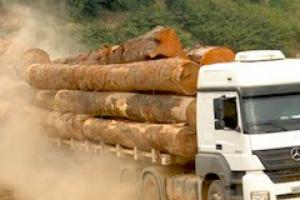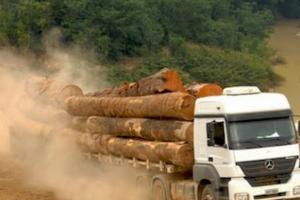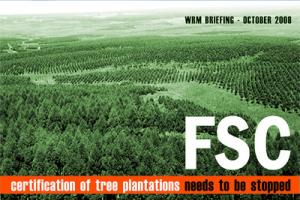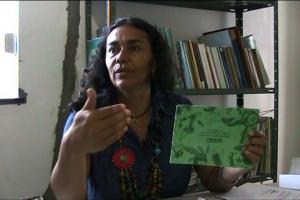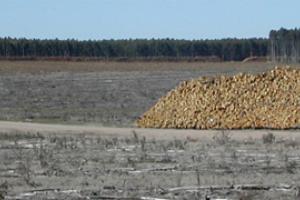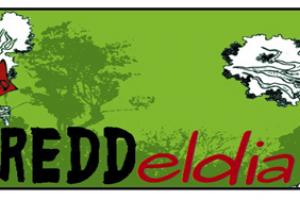Over the last two decades, the Latin America and Caribbean region has lost 9% of its forest cover, primarily as a result of logging, the expansion of agribusiness, major infrastructure projects like highways, hydroelectric dams, mining, oil drilling and urbanization, as well as forest fires and the conversion of forests to other land uses, largely caused by these same activities.
The Green Economy
The Green Economy is a tactic used to “clean up” the image of corporations rather than address corporate capture and capitalism as the true drivers of deforestation. False solutions promoted under the Green Economy include certification, sustainable forest management, ecosystem services, REDD+, the bioeconomy, nature-based climate solutions, and zero net deforestation. Rather than stopping it, these “solutions” support corporate-driven destruction that is causing a deep social and ecological crisis.
Other information
30 October 2012
Other information
25 October 2012
By Elder Andrade de Paula
On the eve of another world conference on the environment – Rio+20 – which places emphasis on the climate crisis, we are witnessing major efforts by the centres of world power to promote a discussion with no real discussions. The worn-out model of “sustainable development”, now recycled under the new name of “green economy”, is being put forward as the only alternative to “save the planet”.
25 October 2012
The trend of voluntary certification is a FAO-supported phenomenon that came up in the 1990s, presented by corporations and governments as a solution to deforestation; according to a set of principles and criteria, certification schemes aim to assure consumers that products are coming from areas with a “sustainable forest management”. In some schemes this also includes management of industrial tree monocultures, declaring these activities socially and ecologically benign.
Other information
23 October 2012
“Sustainable on Paper”, a documentary film by journalists An-Katrien Lecluyse and Leopold Broers released in Belgium in 2011, is now available on the internet. The film broadly denounces the FSC certification of plantations owned by one of the biggest eucalyptus and pulp companies in Brazil, Veracel Celulosa, a joint venture of Brazilian-based Fibria and Swedish-Finnish transnational Stora Enso.
Bulletin articles
30 September 2012
Baby food scandals in Africa, tropical forest destruction for candy bars: There are companies like Nestle that attract scandals like light the flies.
Bulletin articles
30 September 2012
The area planted with oil palm trees in Brazil used to be relatively small as compared to other countries producing this plant in Latin America. However, big transnational companies in Brazil like Vale and Petrobrás have revealed the rapid expansion of these plantations meant for the production of biofuels, in the Amazon region, mainly in the State of Pará.
Bulletin articles
30 September 2012
The results of a research study carried out in different region, in 2010, by the Association of Forest Engineers for Native Forests were published last July. This Independent Forestry Monitoring led to a report on the environmental and social impacts caused by large scale tree plantations established by the company Anchile Ltda., and formal complaints were filed at the National Forestry Corporation (“Corporación Nacional Forestal” – CONAF), a body that is part of the Ministry of Agriculture.
Bulletin articles
30 September 2012
Today, speculative financial markets have gained increasing power over the economy and life, in a response to the capitalist crisis that began in the 1970s.
Action alerts
21 September 2012
Civil society organizations are denouncing the FSC certification of Fibria Celulose SA monoculture tree plantations by IMAFLORA, a Brazilian certification body. The organization’s demands are aimed at supporting the social and environmental battle carried out by the populations suffering the effects of cellulose plant projects, in this particular case, those by the firm Fibria (formerly Aracruz Celulose).
Other information
21 September 2012
Press release - International Day Against Monoculture Tree Plantations.
Declarations
20 September 2012
Action alerts
5 September 2012
Humankind faces an environmental, economic, and climate crisis that poses a threat to its survival. Destruction of ecosystems endangers not only communities that directly depend on them, but also the planet as a whole. Power centres have not questioned the production and consumption imperatives that are responsible.
